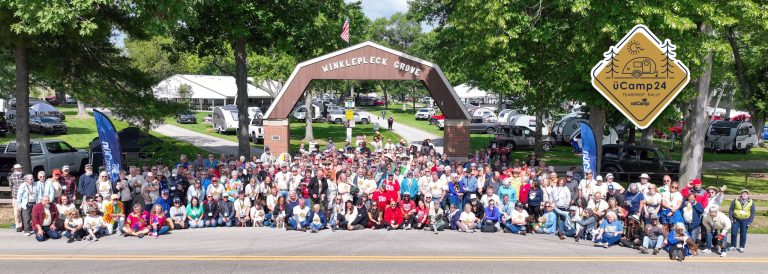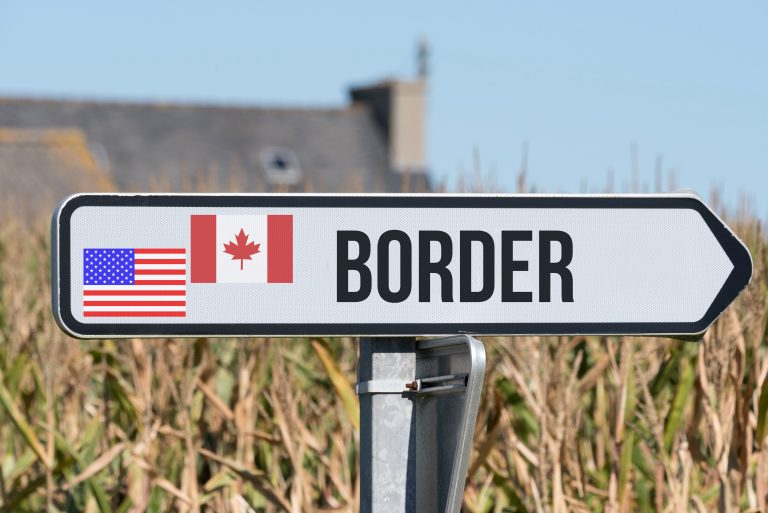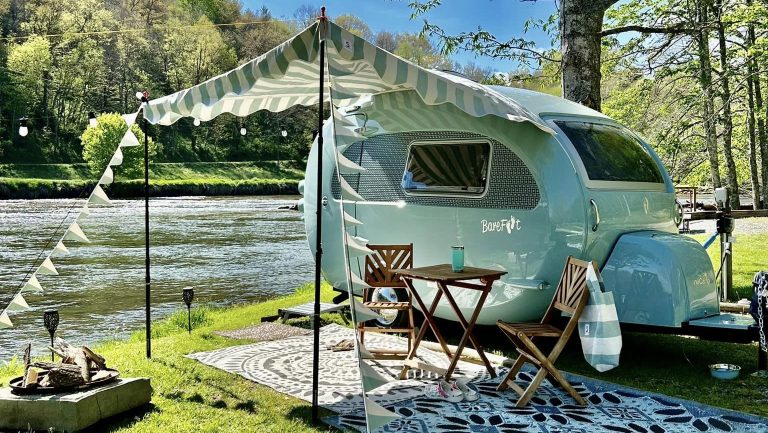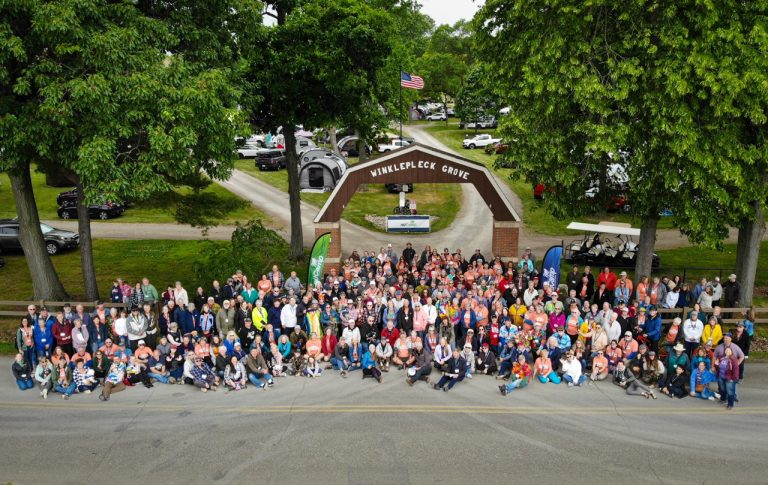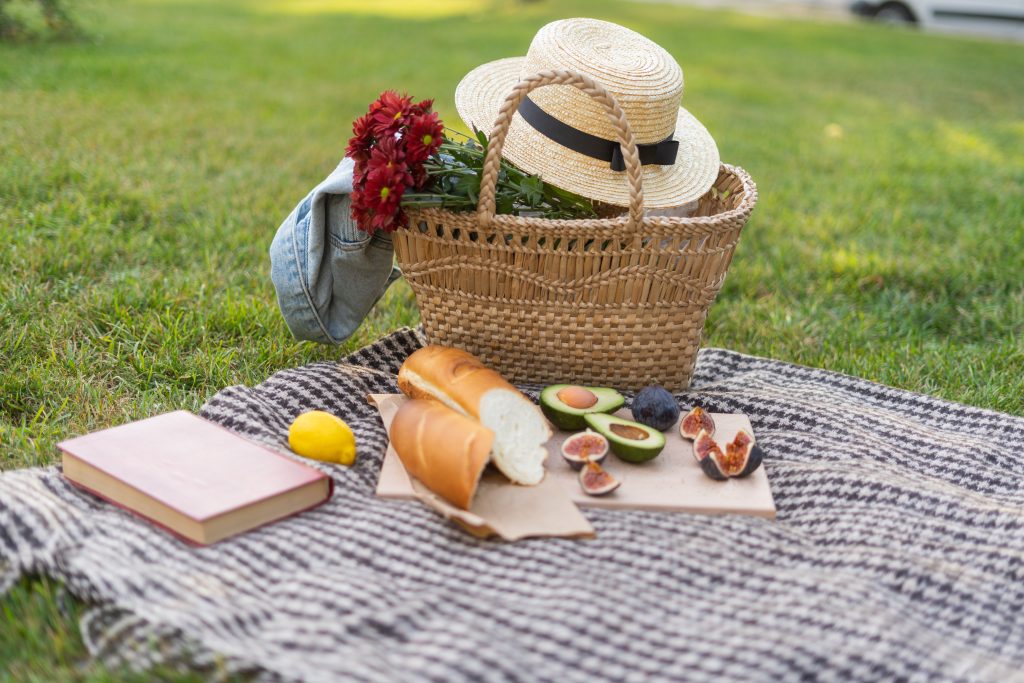RV road trips not only offer you new sights to see and new places to visit but also new people to meet: those strangers-turned-friends that you bond with over casual al fresco meals at campgrounds or boondocking locations.
If picnics are on your must-do list, make the most of your outdoor dining experience by following these food safety tips from US FDA, FoodSafety.gov, EatRight.org, and Leave No Trace.
Keep It Cold.
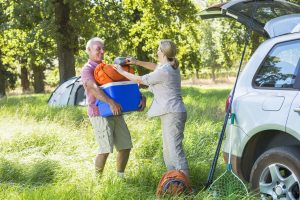
Make sure your refrigerator or cooler keeps your food cold enough to prevent any bacterial growth, aiming for 40 °F or below (freezer temperature should be 0° F or below). Use an appliance thermometer to check the interior of your refrigerator, then keep one in your cooler during the party to monitor the temperature. In the cooler, use ice or frozen gel packs or pack food while frozen, and add more ice as needed, since a full cooler stays cold longer than one half-empty. Consider having two coolers: one for food and one for drinks, since the latter will be opened more frequently, then keep them both in the shade to help reduce the heat impact. Once the picnic starts, don’t keep cold foods out longer than two hours (one hour max when outdoor temps are above 90 °F), placing serving dishes on ice to help maintain the temperature. (Tip: Set the timer on your cell phone so you know when you’re getting close to the two-hour mark.)
Keep It Safe.
Avoid cross-contamination: having juices from raw meat, poultry, or seafood from coming into contact with prepared or cooked foods or fruits and vegetables that are eaten raw. Use food storage bags that can be tightly sealed or clean, tightly sealed containers to transport foods. Do not use the same containers for cooked or fresh foods that held raw foods unless you have thoroughly cleaned it. Planning to marinate food before grilling? Do it in the refrigerator and never reuse that marinade as a sauce over cooked foods. Never use the same plates or utensils for cooked foods that you used on raw foods, and don’t “recycle” ice that is keeping your cooler cold for drinks since it could have picked up bacteria.
Keep It Clean.
Clean your cooler before loading food into it. Then, rinse fresh fruits and vegetables under running tap water or with bottled water before storing them in a refrigerator or cooler. Scrub those with firm skins with a clean vegetable brush and rinse well. Next, make sure all utensils and serving dishes are clean. Did you use a bristle brush to clean your grill? Check for detached bristles that might be left on the grill surface. Finally, keep your hands clean, washing frequently with soap and water or using moist disposable towelettes.
Keep It Hot.
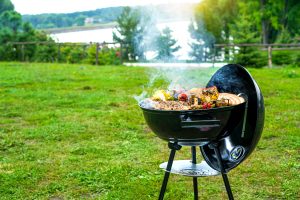
Know what the correct cooked temperature is for the type of food you’re grilling. For example, a minimum internal temperature for burgers is 160°F, while chicken breasts and legs should be cooked to at least 165°F. (See this chart for cooking times and temperatures.) Once the food is cooked, keep it at a safe temp (at or above 140 °F) by moving it off to one side of the grill just away from the coals or other heat source. Allow meat sufficient “rest time” since that additional time destroys harmful germs. Don’t let meat, poultry, or fish sit out for more than two hours (or one hour in temperatures above 90 °F), and toss it if it’s out longer.
Keep It Spotless.
When the meal is over, take some time to ensure the picnic area is left spotless. The Seven Principles of Leave No Trace include disposing of waste properly: pick up any trash or spilled foods, and pack out all kitchen waste, organic litter (food peelings or nut shells) trash, and garbage. Burning or burying these items will still attract animals and make a site unattractive to other visitors.
Don’t wash your cookware or dishes in streams or lakes since that can affect the water quality. Instead, use a clean pot, strain the dirty dishwater when you’re done with a fine mesh strainer, then scatter the strained water broadly, says Leave No Trace. Put the strained bits in a plastic bag to discard appropriately.
By following these tips and properly disposing of trash and leftover food items, you can avoid having unplanned and definitely unwanted “guests” appearing at your campsite or RV’s door!
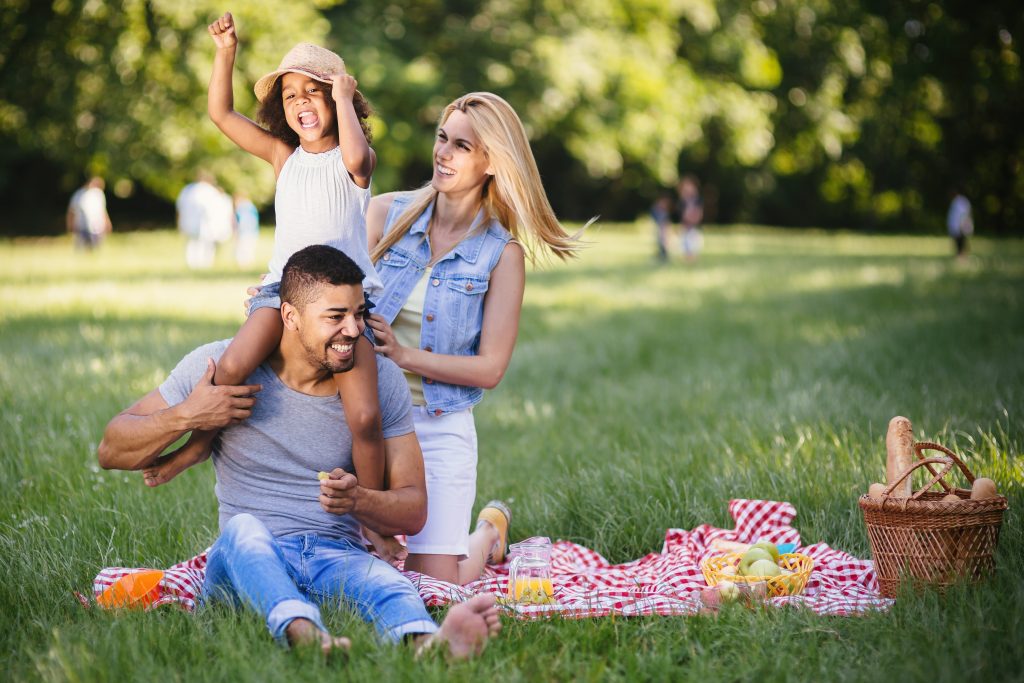
Recent Articles
